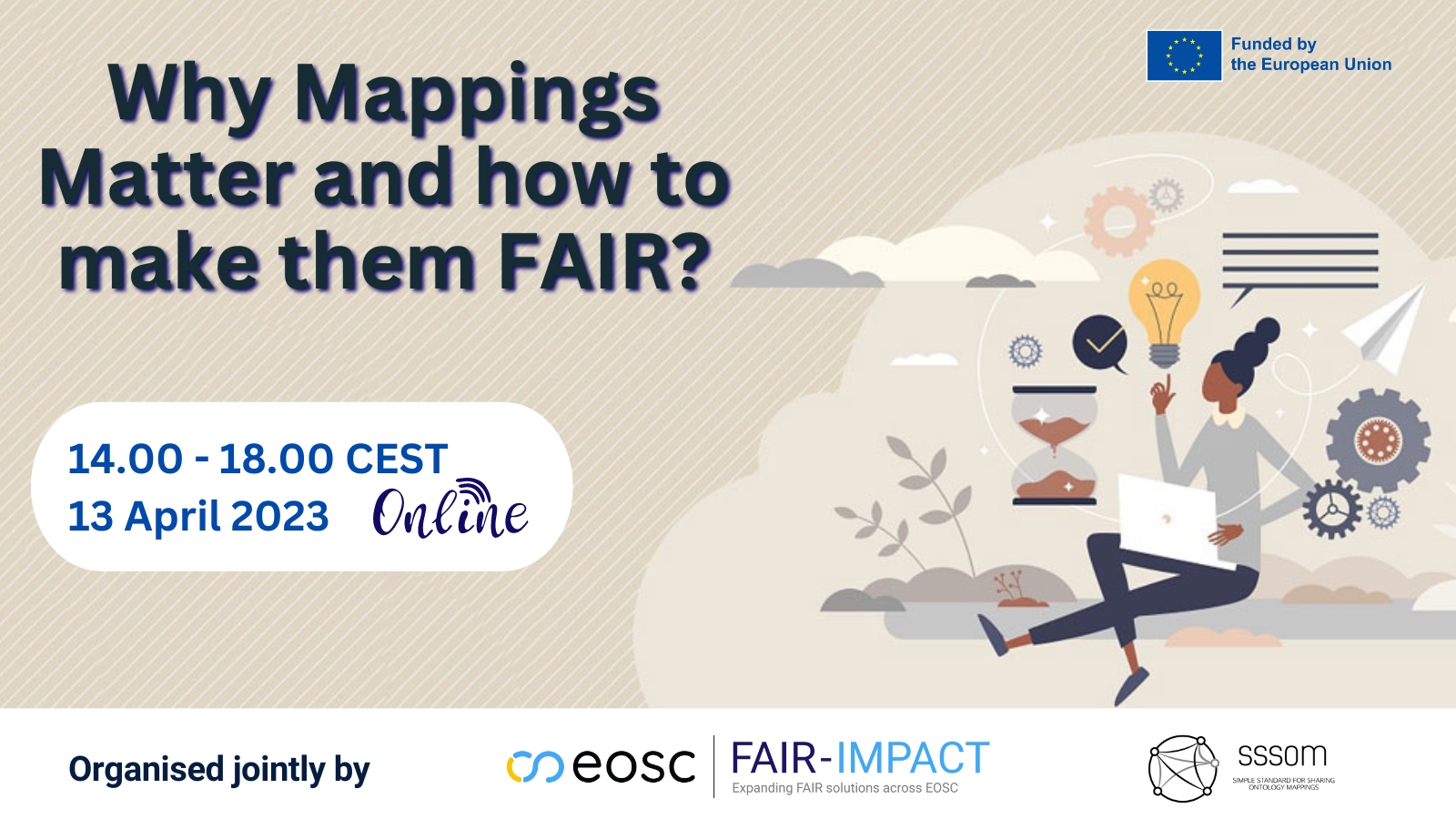Semantic artefacts – a broader term to include ontologies, terminologies, taxonomies, thesauri, vocabularies, metadata schemas and standards – are key to achieving data interoperability and are therefore essential to the implementation of the FAIR principles. With the growing number of semantic artefacts and their diversified uses, interconnecting these artefacts becomes critical but also more challenging. To achieve interoperability and integration, one solution is to identify/generate mappings/crosswalks between different artefacts of the same domain or used to represent the same type of information. This process, known in the semantic web domain as ontology matching or ontology alignment, should be applied to the whole spectrum of semantic artefacts.
As any other type of data, we need a strategy to deal with mappings and ensure mappings are made available following the FAIR principles in relevant mapping repositories where they can be curated, integrated and rendered for reuse. Recent initiatives like the SEMAF study or the SSSOM format or the activities within the FAIR-IMPACT and FAIRCORE4EOSC projects have highlighted the needs of communities to find, access and reuse mappings and crosswalks in a machine actionable format which is not currently addressed.
FAIR-IMPACT is hosting a series of workshops to discuss issues around mappings and crosswalks and how they can become shareable and reusable, i.e. FAIR, elevating them to “first class” citizens in the FAIR data world.
Goal of the event
The 1st workshop of the series, ‘Why Mappings Matter and how to make them FAIR?’, will introduce participants to the motivation behind doing mappings and how they could benefit even more by making mappings FAIR. Then a series of Show and Tell presentations will take place, where use cases and practices from a range of communities –spanning domains, research infrastructures, projects, task forces, and working groups– will be presented. During this workshop, we will also introduce The Simple Standard for Sharing Ontological Mappings (SSSOM) as a candidate format for defining and sharing entity mappings, considering also its pivotal role in the FAIRCORE4EOSC technical specifications.
The presentations will be followed by a collaborative work on mapping aspects, including methodologies, formats, tools, requirements for FAIR mappings and examples.
The main objective of this workshop is to define, together with different communities, the initial requirements for developing a useful framework around FAIR mappings including the requirements to adhere to the FAIR principles.
This workshop is organised by FAIR-IMPACT and the SSSOM developer community. Tommi Suominen, CSC, FAIRCORE4EOSC Project Coordinator, takes part in the workshop with the presentation "FAIRCORE4EOSC: toward a mapping registry".
Agenda
| 14.00 - 14:10 |
Welcome and introduction to the objective of the FAIR-IMPACT project, the workplan and this workshop - Yann LeFranc |
||
| 14.10 -14:30 | A brief State of the Art Briefing: why we have mappings and why FAIR mappings would be a good idea (cost/benefit) - Yann LeFranc | ||
| 14:30 - 15:30 |
Show and Tell : Community approaches (15min each)
|
||
| 15.30 - 15.45 | Quick coffee and Biobreak | ||
| 15.45 -16.00 |
Semantic Interoperability Task Force - Milan Ojstersek |
||
| 16.00 -16.15 |
SSSOM: a machine actionable model for simple mappings - Nicolas Matentzoglu |
||
| 16.15 -16.30 |
FAIRCORE4EOSC: toward a mapping registry - Tommi Suominen, CSC |
||
| 16:30 -17.30 |
Breakouts discussions - what do we want in a framework for FAIR mappings and how do we make mappings FAIR? |
||
| 17:30 -17.45 |
Presentation of results from the breakouts and next steps |
||
| 17.45 -18.00 |
Concluding presentation: Mapping with ChatGPT - Kristian Garza, DataCite |
||
